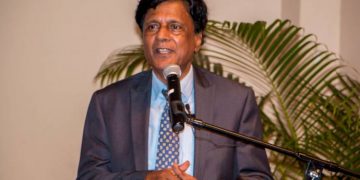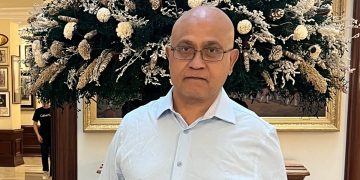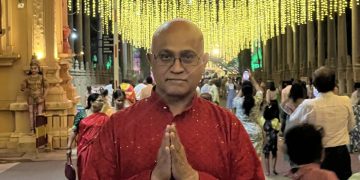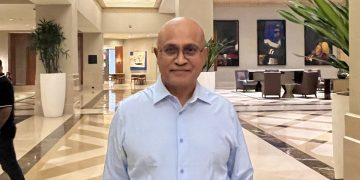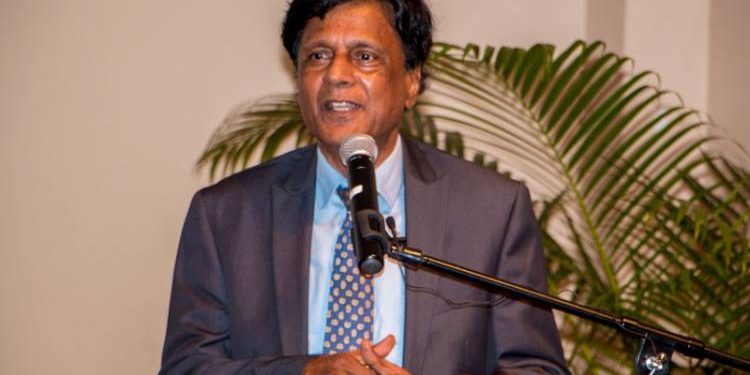Most of us know the Prahalad stories about the origins of Holi – or “Phagua”, as it is known in the Bhojpuri belt from where most Indians in the Caribbean originated. But we can also look at the festival from the standpoint of nation-building,
As a colony of first the Dutch and then the British, Guyana was defined as a “Christian” nation by both of those European nations. As such, following European tradition, the Public Holidays in the colonies – primarily of Christian origin: Christmas, Boxing Day, Good Friday, and Easter Monday – were granted, so that the government officials and plantation overseers etc. could participate in both the commemorative and celebratory aspects of public holidays.
When labourers were brought to work on the plantations, the dominant nationalist ideology of the British was assimilative: all who lived in the colony were expected to assimilate British culture and religion, which was Christianity. Public Holidays were regarded as an integral aspect of defining the nation since, as one theorist pointed out, it was the practices of the citizen – the public – that served to define the character of the “Nation”. Festivals and commemorations, whether religious or secular, are important elements if defining what it is that constitute the “nation”.
It is for this reason that when Indian indentured labourers were brought after the enslaved Africans had been converted to Christianity, while they were not officially coerced to convert, their culture and religions were defined out of what constituted the “nation”. These were “ethnic” and “pagan” and not given official imprimatur – whether cremation of the funerary rites -, or given the same opportunity to celebrate their important, defining festivals.
After WWII, however, local nationalist leaders challenged this view and raised the issue of the nature of the “nation” and its cultural constitutive elements. The British assimilationist imperative was questioned and then rejected as those leaders sought to validate local practices – such as Holi for Hindus and Eid for Muslims – that were integral to the identity of the various peoples in the country but which were peripheralized. The new nation was to be “multicultural” and “multi religious”. As one Canadian theorist, Isajiw later proposed, when Canada adopted multiculturalism as their official policy: “multiculturalism offers a set of social (which); values not only recognized the ‘expressive identity needs and the instrumental power needs’ of ethnic groups but also stood for the ‘basis for a new kind of universalism which legitimizes the inclusion’ of ethnic groups.” Multiculturalism, i.e. as an ideology.
In 1963, the PPP, in charge of internal self-government, established a Parliamentary Commission that deliberated on several Hindu and Muslim festivals to be recommended as Public Holidays. Three from the former and – including Holi and two from the latter were recommended by 1964. The PPP, however, was removed from office at the end of that year and in 1967, the new PNC regime revived the proposals and legislated recognition to Holi and Divali as Public Holidays.
The 1967 legislation offered the rationale: “A driving force behind the changes made in the holiday structure was the facilitation of people of different persuasions to participate in the rich heritage that the diversity in the Guyanese culture provided. It was accepted then that one of the ways to achieve such participation was to grant religious holidays to Christians, Hindus and Muslims. At the same time this perspective would have enabled the removal of those holidays that had no significance for the Guyanese heritage.”
The Commission focused on Festivals that built social cohesion and so for instance rejected Ram Navmi presumably on the ground that not all Hindus accepted his Divinity. So from this standpoint of bringing all the various peoples in our multicultural nation together no other festival does this like Holi. In the more than fifty years since it became a Public Holiday, Phagua has been embraced by the widest possible cross section of Guyanese. If life is all about happiness then Phagwa is the festival that brings out this more than anything else in Guyana.
Holi is not just “heritage” that is backward looking but a joyous reaffirmation of the bonds in a community that keeps it together. This is essential for progress and development in its widest possible meaning. It builds the kind of trust from childhood to adulthood that performatively defines “nation building.”
